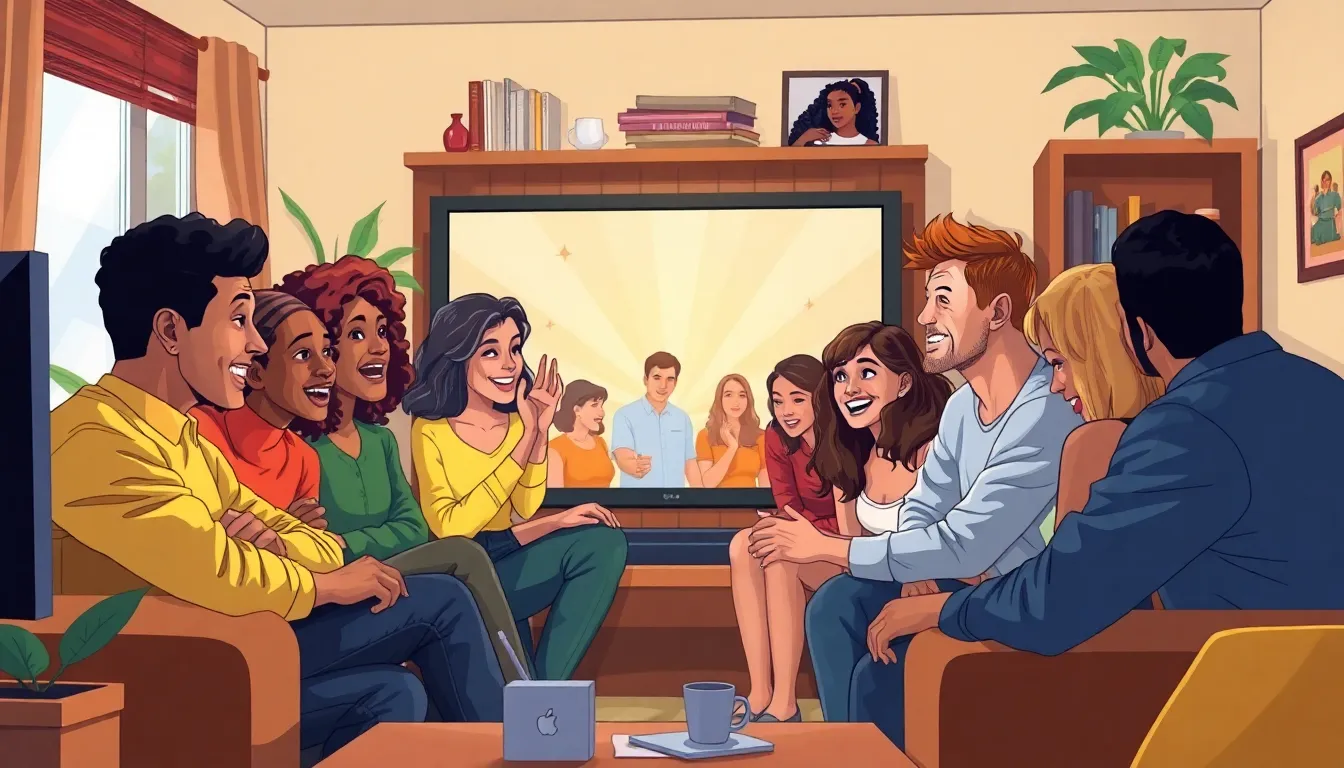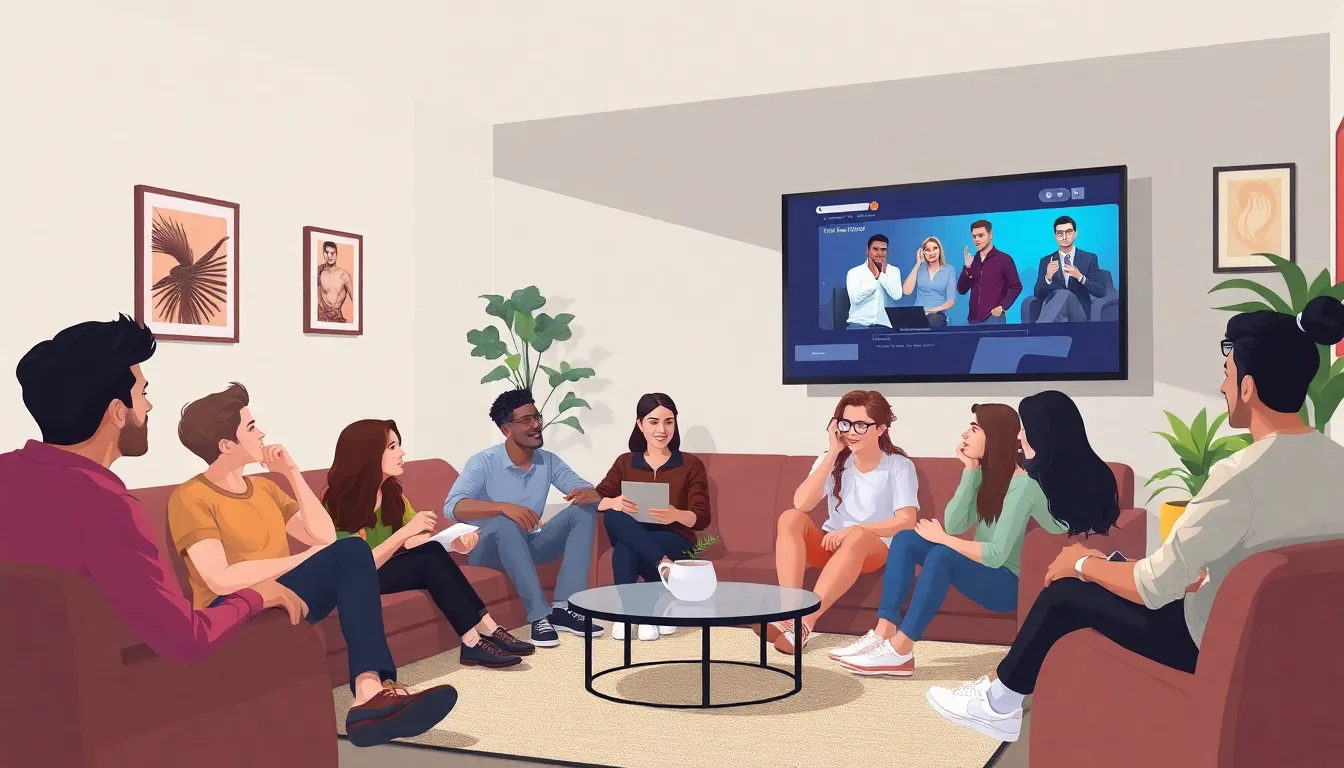Table of Contents
ToggleIn today’s fast-paced world, popular culture shows aren’t just entertainment—they’re a global phenomenon that shapes trends, influences conversations, and even defines generations. From binge-worthy dramas to laugh-out-loud comedies, these shows have a knack for capturing the zeitgeist in ways that make audiences laugh, cry, and occasionally question their life choices.
Whether you’re a die-hard fan or a casual viewer, the magic of popular culture shows lies in their ability to connect people through shared experiences. They spark debates, inspire memes, and sometimes even lead to that awkward moment when you realize you’ve quoted a fictional character more than your own friends. Dive into the world of popular culture shows, where every episode offers a new adventure and a fresh perspective on life.
Overview of Popular Culture Shows
Popular culture shows encompass a wide range of genres, including dramas, comedies, and reality TV. They play a crucial role in shaping societal trends and discussions. Audiences connect deeply with these productions, often reflecting their own experiences and aspirations.
Current statistics highlight that approximately 60% of Americans regularly watch streaming services featuring popular culture shows. Such high engagement indicates their significance in daily life. Social media platforms amplify these shows’ reach, allowing for real-time conversations. Viewers frequently share reactions and insights, contributing to a broader cultural dialogue, while memes and fan theories emerge as a common form of expression.
Genres such as fantasy and sci-fi continue to gain traction, attracting substantial followings. The influence of these shows extends beyond entertainment; they spark educational conversations and raise awareness of critical societal issues. For instance, series addressing mental health topics lead to increased discussions about stigma and support.
Characters in popular culture shows often resonate with audiences, embodying diverse experiences and challenges. This representation helps viewers feel understood and connected. Further, iconic catchphrases and moments become ingrained in collective memory, solidifying their impact.
Ongoing shifts in technology, particularly streaming platforms, change how audiences consume these shows. Viewers now prefer binge-watching entire seasons, altering traditional viewing habits. Such trends ensure that popular culture shows remain relevant and engaging, continually shaping the cultural landscape.
Impact on Society


Popular culture shows significantly influence society, shaping conversations and connecting audiences. These programs reflect and often mold cultural trends, making them vital to understanding contemporary social dynamics.
Reflection of Cultural Trends
Shows like these serve as mirrors for cultural movements and social behaviors. They explore themes tied to social justice, relationships, and technology, presenting modern challenges and aspirations. Notably, trends in fashion or music often emerge from the narratives and aesthetics of popular series. For instance, a surge in awareness of mental health issues appears alongside character-driven stories addressing these topics. Viewers connect with characters they see as relatable, highlighting shared experiences that foster communal dialogue. The impact becomes evident as audiences replicate styles and phrases seen on-screen, embedding them into everyday culture.
Influencing Public Opinion
Public opinion frequently shifts in response to popular culture shows. These programs spark discussions on significant topics, like politics and environmental issues. Characters and storylines often serve as catalysts for debates, prompting viewers to reconsider their viewpoints. For example, reality TV has generated conversations around social ethics and personal responsibility, influencing perceptions of celebrity lifestyles. Social media amplifies this effect, allowing real-time reactions and discussions that further cement these shows’ influence on public sentiment. Data indicates that around 60% of Americans engage with discussions related to their favorite shows, demonstrating their power to shape how society views various issues.
Genres of Popular Culture Shows
Popular culture shows span various genres, each captivating audiences in unique ways. The diversity of themes reflects societal interests and values.
Reality Television
Reality television captivates millions with its unscripted drama and authentic emotions. Shows like “Survivor” and “The Bachelor” illustrate everyday challenges and relationships. Participants frequently become cultural icons, influencing trends and social norms. Reality TV has sparked discussions about social ethics and personal choices, leading to debates among viewers. With approximately 60% of Americans engaging in conversations about these programs, their impact on public opinion is substantial. They often prompt viewers to reflect on their own lives and experiences.
Sitcoms and Dramas
Sitcoms and dramas remain staples of popular culture, offering comedic relief and dramatic storylines. Series such as “Friends” and “Breaking Bad” highlight individual and collective experiences. These shows frequently tackle relevant themes like relationships and personal struggles. Viewers often resonate with character arcs, fostering deeper connections. Catchphrases from these series permeate daily conversations, embedding into collective memory. Their storytelling influences public discourse, promoting discussions on various societal issues. Engaging narratives consistently attract significant viewership and generate buzz across social media platforms.
Documentaries
Documentaries offer an insightful look into real-world events and issues, providing viewers with well-researched narratives. Productions like “Planet Earth” and “Making a Murderer” bring attention to various topics, from nature to criminal justice. These shows encourage critical thinking and inspire further exploration of complex subjects. Audiences often find themselves enlightened, leading to discussions that extend beyond the screen. Documentaries have the power to influence opinions and drive social change through awareness. Recent trends show heightened interest in educational content, reflecting viewers’ desire for knowledge.
Key Examples of Popular Culture Shows
Popular culture shows encompass a range of genres that captivate audiences and shape societal discourse. They offer various narratives and themes, often resonating deeply with viewers.
Iconic Series
“Friends” remains one of the most recognized sitcoms, showcasing relatable characters and humorous situations. “Breaking Bad,” often hailed as a defining drama, explores moral dilemmas through its complex protagonist. Other shows, like “The Office” and “Game of Thrones,” have generated significant cultural impact, creating memorable moments and catchphrases. Each series reflects contemporary issues, fostering viewer connections that transcend media. Strong character development engages the audience and encourages discussions about broader societal themes.
Groundbreaking Productions
Shows like “The Handmaid’s Tale” and “Black Mirror” challenge conventional narratives, addressing pressing social issues through innovative storytelling. “Stranger Things” attracts fans with 80s nostalgia while weaving in themes of friendship and resilience. Documentaries like “Planet Earth” showcase environmental issues, sparking conversations about conservation. These groundbreaking productions not only entertain but also instigate critical thinking among viewers. Audiences engage with the content on multiple levels, reflecting on larger cultural and ethical concerns.




